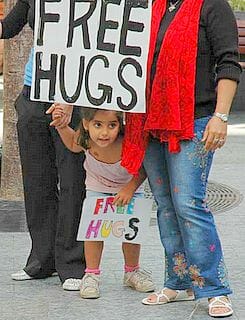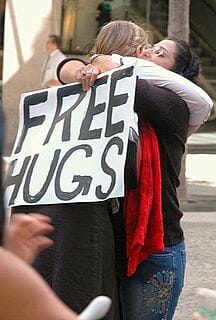Depressing news:
Everyone will, at some time in their life, be affected by depression, their own or someone else’s in their family
According to Australian Government statistics
Depression statistics
- Australian depression statistics are comparable to those of the US and the UK
- 15% of the population of most developed countries suffers severe depression
- Depressive disorders affect approximately 9.5% of the population aged 18 and older in any given year. This includes major depressive disorder, dysthymic disorder and bipolar disorder
- Pre-schoolers are the fastest-growing market for antidepressants. At least 4% of preschoolers are clinically depressed
- The rate of increase of depression among children is an astounding 23% per year
- 30% of women are depressed. Men’s figures were previously thought to be half that of women, but new estimates are higher
- 54% of people believe depression is a personal weakness
- 41% of depressed women are too embarrassed to seek help
- 80% of depressed people are not currently having any treatment
- 15% of depressed people commit suicide
- Depression will be the second largest killer after heart disease by 2020
- Studies show that depression is a contributory factor to fatal coronary disease
It’s the sense of touch. In any real city, you walk, you know? You brush past people, people bump into you. In L.A., nobody touches you. We’re always behind this metal and glass. I think we miss that touch so much, that we crash into each other, just so we can feel something
from the movie “Crash”
When I read the statistics about depression, it really made me depressed. Realizing that one day in our lives, we will be affected by depression, our own or someone else’s in our family, is pretty shocking, don’t you agree?
For a while, I’ve been thinking of ways to motivate my readers to live an inspiring life that will make a difference. Many people think that the way we can make a difference is by doing big things and I think we need to re-define the meaning of “big”.
I think we can make a difference, a big difference, by changing the depression statistics in the world. One person at a time, we can teach how to put happiness in our hearts and chase away the darkness. And you are probably asking yourself, “And how do we do that with no budget, without the support of the government and without organizing ourselves in a formal way?”
And I say we can do this by changing our own life and surroundings and, like a ripple effect, spread the word and make this world a better place for ourselves and our children.
I believe the reason depression is on the rise is because touch is on the drop. Babies get touched a lot from the day they are born, but every year of their life they are touched less and less. Some people think it’s inappropriate to hug a teenager or their parents, so they shake hands instead.
Most people’s lifestyle is more stressful and includes fewer opportunities for physical contact than ever before. Twenty years ago, teachers used to hug and touch their students and that was fine with parents. Touch was a sign of caring. Nowadays, concerns about sexual harassment and inappropriate touching make people overly cautious and reluctant to touch others.
As a result, many of us find ourselves starved for simple, casual, warm touch from our families, friends and colleagues. There’s a whole new field now called psychoneuroimmunology, or PNI for short. It claims that when you feel good and you love yourself and you’re being touched and you feel loved, your immune system gets stronger.
Touching builds up the immune system (they now call this “libidinal refuelling”). When you hug somebody, you literally recharge your and the other person’s libido, the powerful energy of the body.
 New studies point to touch therapy as a way to overcome medical conditions, such as osteoarthritis and depression. Studies indicate that touch has a beneficial effect on our perception of pain, treatment of disease, as well as emotional and physical development.
New studies point to touch therapy as a way to overcome medical conditions, such as osteoarthritis and depression. Studies indicate that touch has a beneficial effect on our perception of pain, treatment of disease, as well as emotional and physical development.
After touch therapy, like massage, there’s a slow-down in the action of the hypothalamic area of the brain, which controls the “fight or flight” response. Your body’s stress hormones drop and endorphins climb, leading to a decreased perception of pain and a greater feeling of well-being.
If the touch comes from someone you have positive feelings about, like a friend, partner or loved one, you get the added benefit of a heightened sense of love and security. Sex, for that matter, is great touch therapy. Have sex a lot!
In a research on the effects of touch, librarians were instructed alternately to touch and not touch the hands of students as they handed back their library cards. The students were then interviewed.
Those who had been touched reported far greater positive feelings about themselves, the library and the librarians than those who had not been touched. This occurred even though the touch was brief and the students didn’t even remember it!
I’ve been trying this with my clients for a long time and could see the enormous effect of hugs on their success. Some clients have managed, by adding more touch into their life, to stay off their anti-depressants and regain the control of their life, a small addition, which made a big difference.
Hugs can bring a great sense of connection and belonging into your life. They’re free and within reach. When you give, you also receive and all you need is 12 hugs a day for good emotional health. The Be Happy in LIFE 

There is no such thing as Hug Credit! But simply counting your hugs every day will help keep you aware of the importance of touch. Better yet, it’s contagious!
We, at Be Happy in LIFE, want to stretch out our arms to you for a big world hug (remember: when we give, we receive) and send out 12 hugs to you with wishes for a wonderful year of being in touch with yourself, with nature and with the people around you.
Please forward this post to as many people as you can to make our world hug as big as possible (you still need 12 real hugs).
Hugs are a simple way to make a difference and make this world a better place. If everyone gives (and at the same time gets) 12 hugs a day and encourage all your hugged ones to do the same, all you, mathematicians, can calculate how fast we can make the world a better place.
Be happy in life!
Lots of hugs,
Ronit











